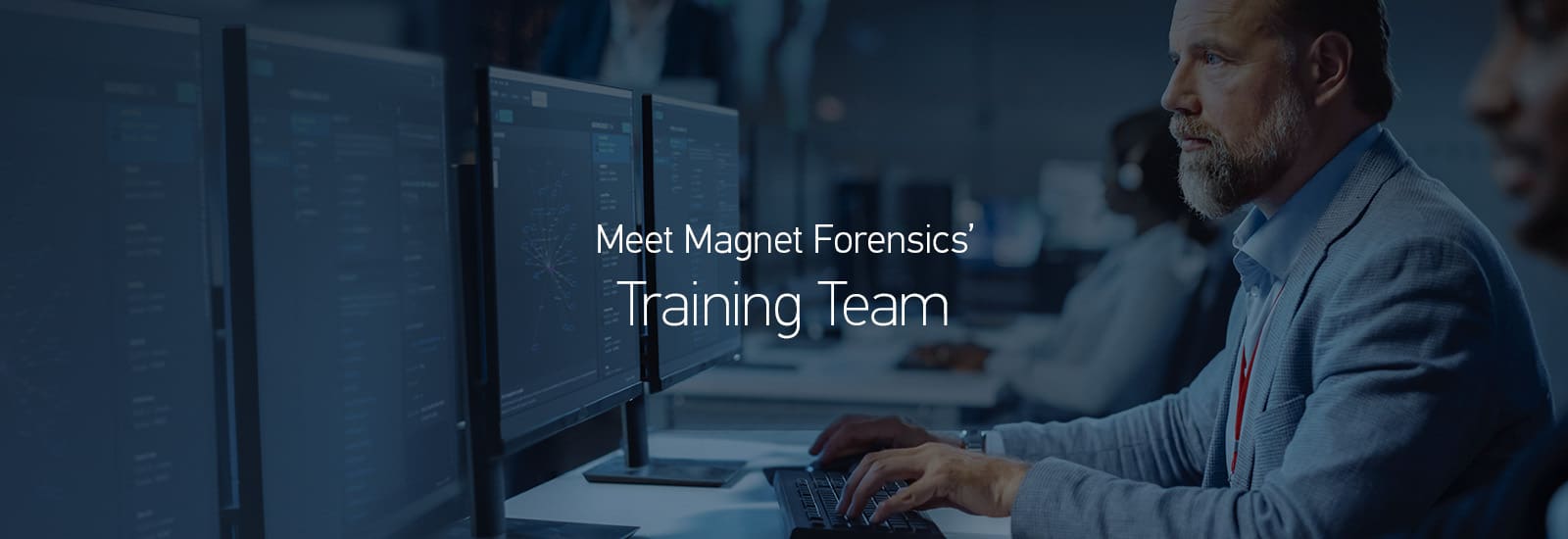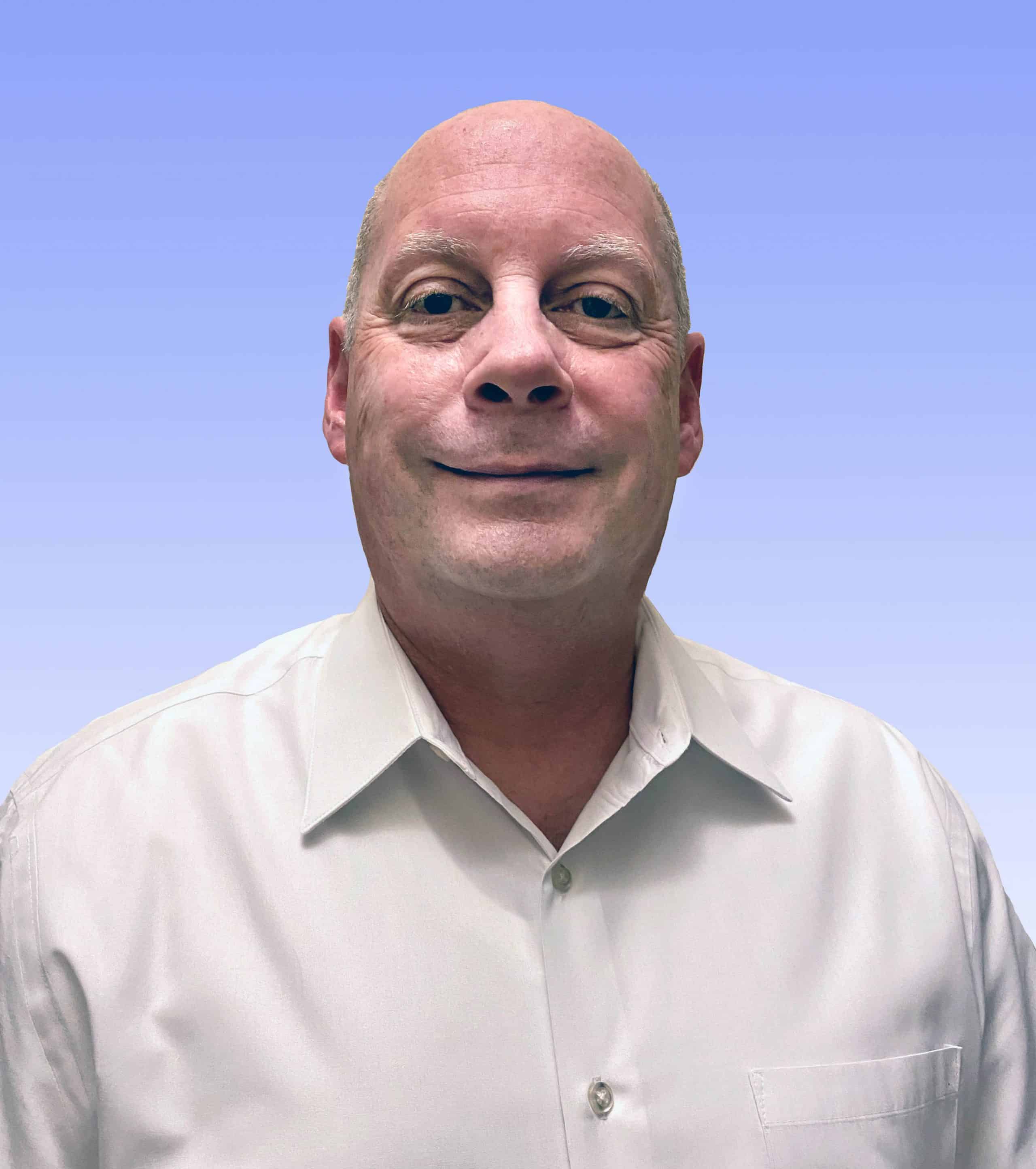
Meet the Magnet Forensics’ Training Team: Christopher Bomar
Introducing our newest member of the Training Team, Christopher Bomar.
Christopher joins us with a background in law enforcement, having run a digital forensics lab in South Carolina. He enjoys meeting and teaching students from different agencies and corporate entities. Let’s get to know Christopher!
Want to learn more about what courses are offered? Visit our Training & Certification page for more information.
MF: Tell us about your life before becoming a Trainer.
CB: I just retired after 26 years in Law Enforcement. Before retiring and becoming part of the Magnet Team, I ran the digital forensic lab for the ICAC Unit with the South Carolina Attorney General’s Office with over fifteen years as a digital forensic examiner.
MF: What made you want to be a Trainer?
CB: I enjoy working and sharing my knowledge with others. The digital forensics world is relatively new to most law enforcement agencies compared to other traditional forensics. This gives me a chance to share what I have learned through my exams and learn through students.
MF: What type of training have you taken part in personally? What is your favorite part of the role?
CB: Throughout my career, I have attended multiple Magnet Forensics courses as well as training courses from various other forensic tool vendors. I have learned different situations may arise on scene that may require a different approach and how knowing different ways to tackle a problem will help you be more successful.
MF: What excites you the most about a new class?
CB: Getting in a new classroom allows me to interact with people from different agencies and corporate entities. It brings a new experience and helps me to grow not only in terms of the knowledge of meeting different needs but also in gaining different perspectives for solving problems.
MF: Do you ever learn anything from the students?
CB: The students help me in my growth by the questions they ask, especially if it is a question that gets me to think outside of the box to solve a problem.
MF: Is there a particular moment that stands out the most to you in your career in the classroom?
CB: Like many other instructors when a student comes to you after a course and says that they really enjoyed the class and understood the subject matter, it makes me feel like I accomplished my job.
MF: What do students get out of training in person that they can’t get on their own?
CB: I find that with in-person training students get the ability to receive real-time help from the instructor because the student and teacher can work together to resolve problems or questions together.
MF: How prepared do you feel students are to use Magnet Forensics products after taking the training course?
CB: After a student finishes their training with us, they should be able to use the software in their everyday jobs and feel comfortable with the results. There is nothing better than feeling comfortable on how to use a forensics tool and to get the most value from it.
MF: What is most unique about Magnet Forensics’ approach to training?
CB: Most of the Magnet Forensics instructors have been in fields related to the one that you are currently working in. They have seen the problems that you are facing and know how to tackle them. They bring courses into a context that you are familiar with and understand.
MF: Why do you think certification is important to examiners?
CB: The biggest gain in getting your certification is the knowledge you know the material that you will be talking about. The certification also lets others know that you not only went through the class but have been tested on the material and passed.
MF: How do you manage to keep up on the latest trends in digital forensics?
CB: How I keep up with the latest trends by reviewing digital forensic articles and talking with others who are currently in the trenches of digital forensics.
MF: What trends do you see coming down the pipeline in digital forensics?
CB: What I see coming down the pipeline in digital forensics is that our approach to imaging and collecting evidence will change. The traditional write blocker approach will evolve into different approaches including live imaging and folder acquisitions. Encryption is here to stay and learning different approaches on how to handle the encryption side of things will be key to your success.
Thank you, Christopher! Welcome to the Training team and to Magnet Forensics overall—we look forward to seeing your future contributions.
Read our previous interviews with VP Training Chuck Cobb, Director of Training Operations Jamey Tubbs, Chris Vance, Patrick Beaver, Doug Estes, Lyn Goh, Larry McClain, Hoyt Harness, Jerry Hewitt, Chris Blight, Erich Schmidt, and Justin Almanza.
Click here to go to the Magnet Forensics Training and Certification Portal.
